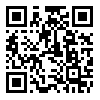Volume 11, Issue 1 (6-2025)
Caspian J Reprod Med 2025, 11(1): 37-42 |
Back to browse issues page
Download citation:
BibTeX | RIS | EndNote | Medlars | ProCite | Reference Manager | RefWorks
Send citation to:



BibTeX | RIS | EndNote | Medlars | ProCite | Reference Manager | RefWorks
Send citation to:
Kanyal S T. Leveraging ChatGPT to address menstrual hygiene product misconceptions: Opportunities and limitations. Caspian J Reprod Med 2025; 11 (1) :37-42
URL: http://caspjrm.ir/article-1-267-en.html
URL: http://caspjrm.ir/article-1-267-en.html
Lokmanya Tilak Municipal Medical College and Sion Hospital, Mumbai, Maharashtra, India , kanyalshweta13@gmail.com
Abstract: (1369 Views)
Background: Menstrual hygiene management (MHM) is a critical public health issue hindered by misconceptions about menstrual hygiene products (MHPs), leading to harmful practices and reduced health outcomes. Artificial intelligence (AI) tools like ChatGPT offer potential for scalable health education but require evaluation for reliability and cultural sensitivity. The aim of study was to assess ChatGPT’s effectiveness in addressing MHP misconceptions through structured dialogues, focusing on accuracy, comprehensiveness, and cultural sensitivity.
Methods: Fifteen queries on MHPs (e.g., tampon safety, menstrual cup efficacy) were developed from literature reviews and public forums, validated by MHM experts. Dialogues with ChatGPT (version 4o mini, OpenAI) were conducted from June 1–15, 2025, with each query posed thrice. Responses were analyzed for accuracy, comprehensiveness, and cultural sensitivity using a 1–5 scale and qualitative content analysis, with inter-rater reliability (Cohen’s kappa ≥ 0.80).
Results: ChatGPT provided accurate (mean = 4.3, SD = 0.5) and comprehensive (mean = 4.5, SD = 0.4) responses for 80% and 90% of queries, respectively, but cultural sensitivity was lower (mean = 3.7, SD = 0.8), often overlooking infrastructure barriers (e.g., clean water access). Empathetic tone was strong (mean = 4.6, SD = 0.3). No responses included citations, raising reliability concerns.
Conclusion: ChatGPT shows promise as a scalable MHM education tool but requires improved scientific validation and cultural sensitivity. Collaborative integration of evidence-based data and localized insights is essential to enhance its utility in public health education.
Methods: Fifteen queries on MHPs (e.g., tampon safety, menstrual cup efficacy) were developed from literature reviews and public forums, validated by MHM experts. Dialogues with ChatGPT (version 4o mini, OpenAI) were conducted from June 1–15, 2025, with each query posed thrice. Responses were analyzed for accuracy, comprehensiveness, and cultural sensitivity using a 1–5 scale and qualitative content analysis, with inter-rater reliability (Cohen’s kappa ≥ 0.80).
Results: ChatGPT provided accurate (mean = 4.3, SD = 0.5) and comprehensive (mean = 4.5, SD = 0.4) responses for 80% and 90% of queries, respectively, but cultural sensitivity was lower (mean = 3.7, SD = 0.8), often overlooking infrastructure barriers (e.g., clean water access). Empathetic tone was strong (mean = 4.6, SD = 0.3). No responses included citations, raising reliability concerns.
Conclusion: ChatGPT shows promise as a scalable MHM education tool but requires improved scientific validation and cultural sensitivity. Collaborative integration of evidence-based data and localized insights is essential to enhance its utility in public health education.
Keywords: Artificial Intelligence, Chatbots, Cultural Competency, Health Education, Menstruation, Menstrual Hygiene Products
Type of Study: Original Research |
Subject:
Obstetrics and Gynecology
Received: 2025/02/12 | Accepted: 2025/06/21 | Published: 2025/06/26
Received: 2025/02/12 | Accepted: 2025/06/21 | Published: 2025/06/26
Send email to the article author
| Rights and permissions | |
 |
This work is licensed under a Creative Commons Attribution-NonCommercial 4.0 International License. |







